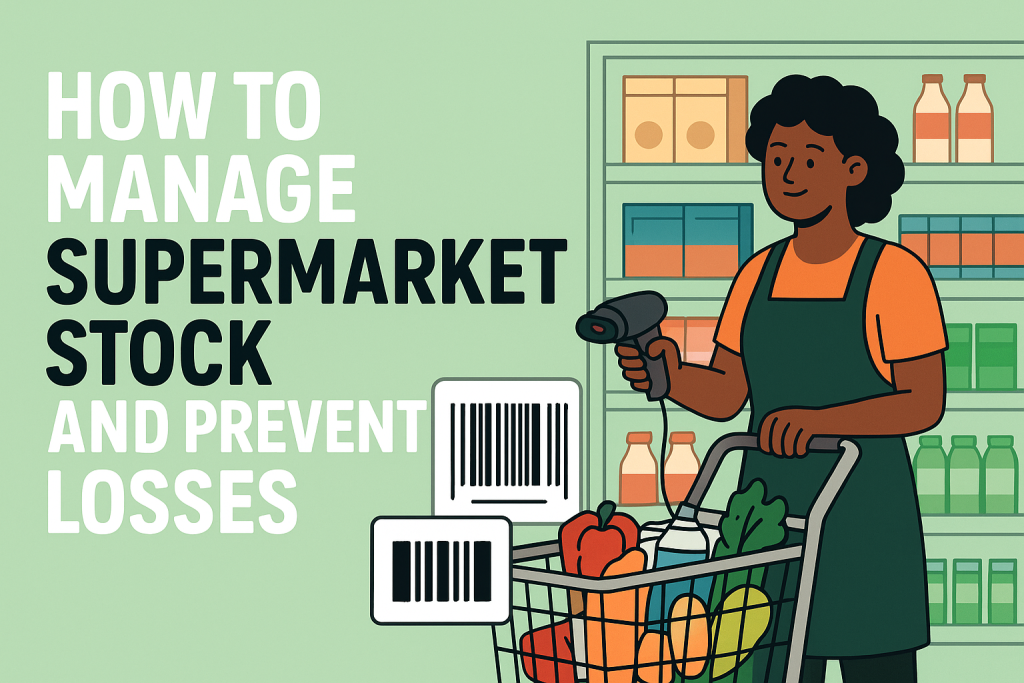How to Manage Supermarket Stock and Prevent Losses

Running a supermarket is all about balancing supply and demand. If you overstock, goods expire on the shelves. If you understock, customers leave disappointed. On top of that, poor stock management leads to losses, theft, and reduced profits.
The good news? With the right system and processes in place, you can manage supermarket stock effectively, prevent losses, and grow your business.
1. Use a Modern POS & Inventory System
Relying on manual records or notebooks creates errors. A POS and inventory management system like Stocker ERP automates stock tracking in real time. Every sale automatically reduces stock, and every purchase updates available items.
Benefits:
- Accurate stock count
- Instant sales reports
- Automatic low-stock alerts
2. Organize Products with Categories & Barcodes
Supermarkets sell thousands of products. Without proper organization, things get messy fast. Group your products by categories (drinks, toiletries, groceries) and use barcodes for quick scanning at checkout.
Benefits:
- Faster sales process
- Easy to locate items in inventory
- Reduced human error at checkout
3. Monitor Expiry Dates and Batches
Perishable goods like milk, bread, and soft drinks can quickly become losses if not tracked. Always record batch numbers and expiry dates when stocking. Your POS system should notify you of items nearing expiry.
Benefits:
- Prevent expired goods on shelves
- Sell older stock first (FIFO method)
- Reduce waste and financial loss
4. Train Staff and Control Access
Sometimes losses come from within. Staff errors, carelessness, or even theft can hurt your supermarket. Create user roles in your system so cashiers, managers, and supervisors only access what they need.
Benefits:
- Transparency and accountability
- Reduced internal theft
- Better performance monitoring

5. Track Sales Trends and Customer Demand
Not every product sells equally. By analyzing sales reports, you’ll know your bestsellers (e.g., Coca-Cola, bread, noodles) and slow-moving products. Stock more of what sells, and reduce purchases of items that don’t.
Benefits:
- Higher turnover
- Reduced dead stock
- Smarter purchasing decisions
6. Audit Stock Regularly
Even with automation, regular physical stock counts are essential. Do monthly or quarterly audits to compare system records with actual stock. This helps you catch discrepancies early.
Benefits:
- Detect missing stock
- Spot supplier or staff errors
- Build trust in your records
Final Thoughts
Supermarket stock management doesn’t have to be complicated. With the right tools and processes — from using a POS system, tracking expiry dates, organizing products, to auditing regularly — you can cut losses, increase profits, and keep customers happy.
At Stocker ERP, we help supermarkets across Nigeria simplify stock management with real-time tracking, expiry date alerts, barcode scanning, and powerful sales reports.
Start your free trial today and take full control of your supermarket stock.

